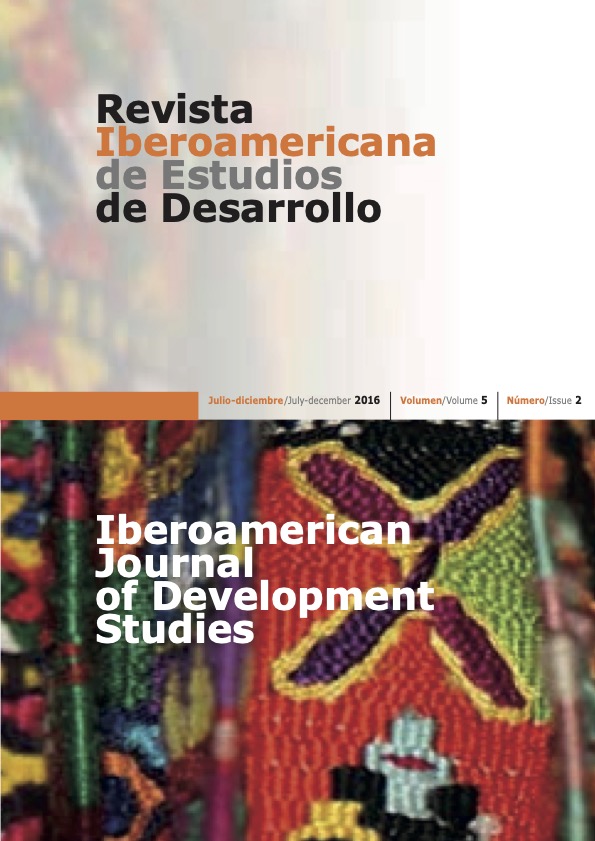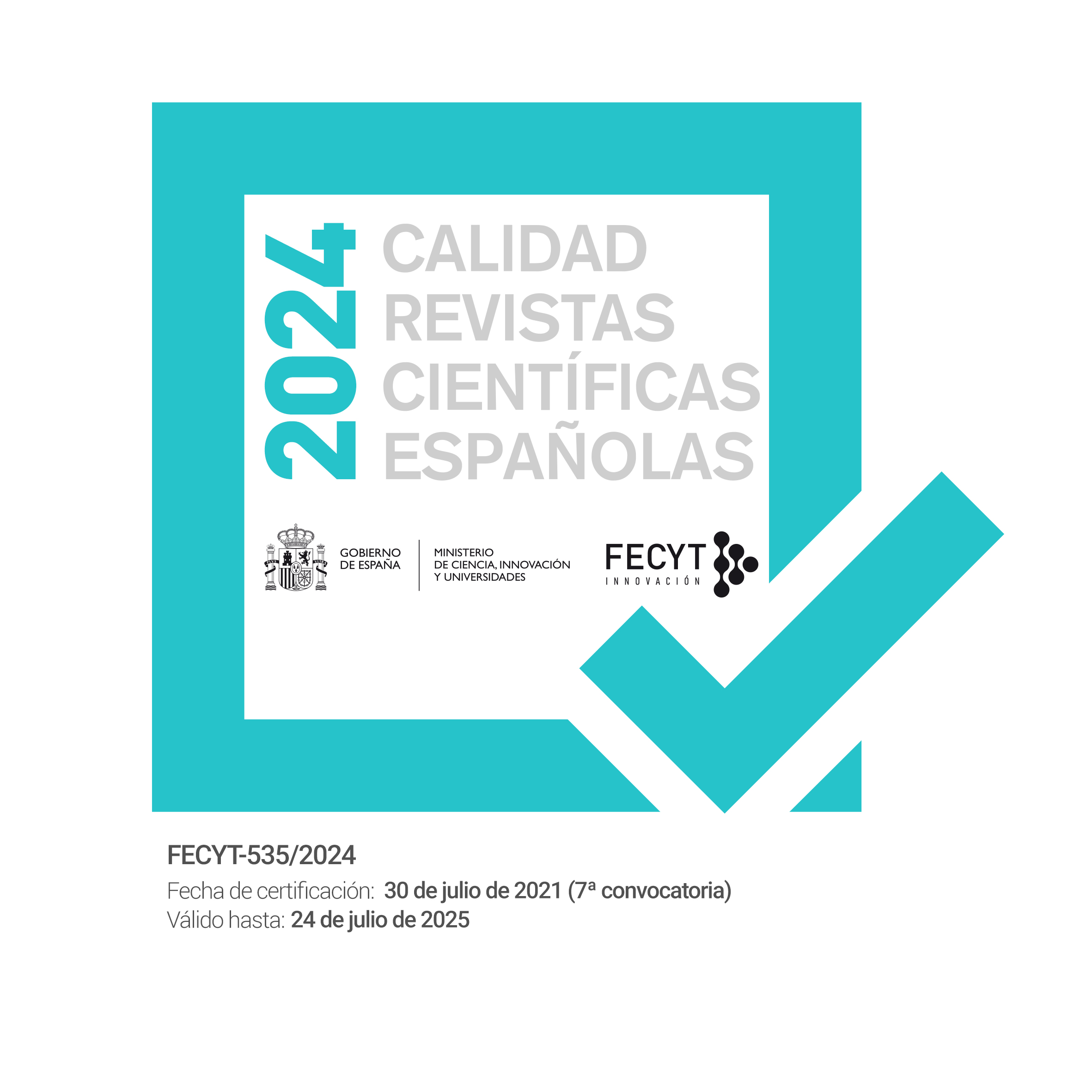Energy for Freedom: reflection for a critical analisys of rural electrification projects
Spanish Network of Development Studies Award for Young Researchers’ Winner 2016
DOI:
https://doi.org/10.26754/ojs_ried/ijds.240Keywords:
off-grid electrification, indigenous people, territory, capability approachAbstract
Energy is considered essential for Human Development. However, rural electrification projects rarely include rural population’s aspirations, especially indigenous people’s aspirations. Using the Technologies for Freedom approach from a multilevel perspective, we analyze a case study in the Ecuadorian Amazon. Through this approach, called Energy for Freedom, which is focused on expanding people’s freedoms, we explore how energy stakeholders’ development and energy visions are connected with Amazonian indigenous people’s aspirations. We argue that integrating the multilevel perspective to the analysis of technological development projects it is essential for the design of alternatives adapted to their diverse realities and to highlight the plurality of energy visions.
Downloads
References
ACOSTA A (2014). Post-crecimiento y post-extractivismo: dos caras de la misma transformación cultural. En: G. Endara (ed.). Post-Crecimiento y Buen Vivir. Propuestas globales para la construcción de sociedades equitativas y sustentables. Friederich-Ebert-Stiftung (FES-Ildis). Quito (Ecuador), pp. 95-124.
ACOSTA A et al. (2014). La cuestión energética vista desde las soberanías. Esbozando algunos factores clave desde sus múltiples dimensiones. Ecuador Debate, 92(Agosto): 39-54.
AGUADO I, ECHEBARRIA C, BARRUTIA JM (2008). El desarrollo sostenible a lo largo de la historia del pensamiento económico. Revista de Economía Mundial 21:87-110.
AIE, BM (2015). Sustainable Energy for All 2015-Progress Toward Sustainable Energy. Washington, DC.
ALTMANN P (2013). El Sumak Kawsay en el Discurso del Movimiento Indígena Ecuatoriano. Indiana 30, pp. 283-299.
ARCONEL (2015). Cobertura Nacional 2014. Agencia de Regulación y Control de Electricidad. http://www.regulacionelectrica.gob.ec/estadistica-del-sector-electrico/produccion-anual-2/. Consultado el 22 de enero de 2016.
ASAMBLEA-CONSTITUYENTE (2008). Constitución de la República del Ecuador. http://www.asambleanacional.gob.ec/sites/default/files/documents/old/constitucion_de_bolsillo.pdf .
ASAMBLEA-CONSTITUYENTE (2015). Ley Orgánica del Servicio Público de Energía Eléctrica. Ecuador: Tercer Suplemento del Registro Oficial 48.
ASSIES W (2005). El multiculturalismo latinoamericano a lo largo del siglo XXI. Jornadas Pueblos Indígenas de América Latina. Estados multiétnicos y multiculturales. Barcelona, España.
AYLLÓN B, DOLCETTI M, 2014. Revolución Ciudadana, Buen Vivir y Cooperación en Ecuador (2007-2013). Relaciones Internacionales 46:177-199.
BARNES DF (2011). Effective solutions for rural electrification in developing countries: Lessons from successful programs. Current Opinion in Environmental Sustainability 3(4):260-264.
BERTINAT P (2013). Un nuevo modelo energético para la construcción del buen vivir. En: C Ortiz y S Ojeda (eds.). Alternativas al capitalismo/colonialismo del siglo XXI. Quito: Abya Yala, pp. 161-188.
BERTINAT P, CHEMES J, ARELOVICH L (2014). Aportes para pensar el cambio del sistema energético: ¿cambio de matriz o cambio de sistema? Ecuador Debate, 92(agosto):85-101.
BIGGERI M, FERRANNINI A (2014). Sustainable Human Development: A New Territorial and People-Centred Perspective. Reino Unido: Palgrave MacMillan.
BRETÓN V, CORTEZ D, GARCÍA F (2014). En busca del sumak kawsay. Iconos. Revista de Ciencias Sociales 1(48):9-24.
CONELEC (2013). Plan Maestro de Electrificación 2013-2022. Ecuador. http://www.regulacionelectrica.gob.ec/plan-maestro-de-electrificacion-2013-2022/.
CUBILLO-GUEVARA AP, HIDALGO-CAPITÁN AL (2015). El sumak kawsay genuino como fenómeno social amazónico ecuatoriano. OBETS. Revista de Ciencias Sociales 10(2):301-333. http://hdl.handle.net/10045/52871.
DÁVALOS P (2014). Geopolítica de la acumulación del capital: Ecuador en la Iniciativa Iirsa-Cosiplan. En: J. Cuvi (ed.). La restauración conservadora del correísmo. Quito: Arcoíris Producción Gráfica, pp. 239-258.
DENEULIN S (2012). Justice and deliberation about the good life: The contribution of Latin American buen vivir social movements to the idea of justice. Bath Papers in International Development and Well-Being 17.
DESCOLA P (1988). La Selva Culta. Quito: Abya Yala e Instituto Francés de Estudios Andinos.
ESCOBAR A (2007). La invención del Tercer Mundo Construcción y deconstrucción del desarrollo. Caracas: Fundación Editorial el Perro y la Rana.
FERNÁNDEZ-BALDOR Á, BONI A, HUESO A (2012). Technologies for Freedom: Una visión de la tecnología para el desarrollo humano. Estudios de Economía Aplicada 30(3):971-996.
FERNÁNDEZ-BALDOR Á, HUESO A, BONI A (2012). From Individuality to Collectivity: The Challenges for Technology-Oriented Development Projects. En: I Oosterlaken y J van den Hoven (eds.). The Capability Approach, Technology and Design. Springer, pp. 135-152.
FONTAINE G (2003). El precio del petróleo. Conflictos socio-ambientales y gobernabilidad en la Región Amazónica. Quito: Flacso-Ecuador, Institut Français d'Études Andines.
FREDIANI AA, HANSEN J (2015). Introduction. En: AA Frediani y J Hansen (eds.). The Capability Approach in Development Planning and Urban Design. DPU Working Papers. Special Issue. Development Planning Unit. The Barlett. University College London, pp. 3-8.
GUDYNAS E (2011). Buen Vivir: germinando alternativas al desarrollo. América Latina en Movimiento 462 (febrero).
GUDYNAS E (2014). Las disputas sobre el desarrollo y los sentidos de las alternativas. Kavilando 6(1):15-29.
HIDALGO-CAPITÁN L, CUBILLO-GUEVARA A (2014). Seis debates abiertos sobre el sumak kawsay. Iconos. Revista de Ciencias Sociales 1(48):25-40.
IBRAHIM S (2006). From Individual to Collective Capabilities: The Capability Approach as a Conceptual Framework for Self‐help. Journal of Human Development 7(3):397-416.
LARREA C, LARREA AI, BRAVO L (2009). Petróleo, sustentabilidad y desarrollo en la Amazonía Norte del Ecuador: dilemas para una transición hacia una sociedad post-petrolera. En G. Jaramillo (comp. y ed.). Construyendo Puentes entre Ecuador y Colombia. Quito: Flacso-Ecuador, PNUD, pp. 145-174.
LI TM (2000). Articulating Indigenous Identity in Indonesia. Resource Politics and the Tribal Slot. Berkeley Workshop on Environmental Politics. Berkeley: Institue of International Studies, Univesity of California.
MARTÍNEZ L (2009). Repensando el desarrollo rural en la dimensión del territorio: una reflexión sobre los límites del Prolocal en el caso ecuatoriano. European Review of Latin American and Caribbean Studies 87(octubre):27-45.
MATHAI MV (2012). Towards a Sustainable Synergy: End-Use Energy Planning, Development as Freedom, Inclusive Institutions and Democratic Technics. En: I Oosterlaken y J van den Hoven (eds). The Capability Approach, Technology and Design. Springer, pp. 87-112.
MCDS (2015). Pobreza por Necesidades Básicas Insatisfechas. Ministerio Coordinador de Desarrollo Social. http://www.siise.gob.ec. Consultado el 20 de marzo de 2016.
MUÑIZ MR (2014). Development Projects from the Inside Out: Project Logic, Organizational Practices and Human Autonomy. Journal of Human Development and Capabilities 15(1):79-98. http://www.tandfonline.com/doi/abs/10.1080/19452829.2013.837034.
NN. UU. (2014). Resumen del Evento. Lanzamiento de la década de la Iniciativa Energía Sostenible Para Todos (SE4ALL) en las Américas. Santiago de Chile, Chile: Programa de las Naciones Unidas para el Desarrollo. Banco Interamericano de Desarrollo.
NN. UU. (2015). Hacia una nueva agenda de desarrollo sostenible. http://www.un.org/sustainabledevelopment/es/mdgs/. Consultado el 30 de septiembre de 2015.
PNUD (2001). Informe del Desarrollo Humano 2001. Poner el adelanto tecnológico al servicio del Desarrollo Humano, http://hdr.undp.org/sites/default/files/hdr_2001_es.pdf .
REN21’S (2016). Renewables 2016 Global Status Report. http://www.ren21.net/status-of-renewables/global-status-report/.
ROBEYNS I (2005). The capability approach: a theoretical survey. The Journal of Human Development 6(marzo):93-117.
SEN A (1999). Development as freedom. Nueva York: Oxford University Press.
SENPLADES (2013). Plan Nacional para el Buen Vivir 2013-2017. Quito.
SHUMACHER EF (1973). Small is beautiful. Economics as if people mattered. Nueva York: Harper and Row.
SHYU CW (2014). Ensuring access to electricity and minimum basic electricity needs as a goal for the post-MDG development agenda after 2015. Energy for Sustainable Development 19(1):29-38. http://dx.doi.org/10.1016/j.esd.2013.11.005.
TAYLOR AC (1994). El Oriente ecuatoriano en el siglo XIX: «el otro litoral». En: J Maiguashca (ed.). Historia y región en el Ecuador: 1830-1930. Quito: Corporación Editora Nacional, pp. 17-68.
UL HAQ M (1995). Reflections on Human Development. Nueva York: Oxford University Press.
VAN ELS RH, DE SOUZA VIANNA JN, BRASIL ACP (2012). The Brazilian experience of rural electrification in the Amazon with decentralized generation ‒ The need to change the paradigm from electrification to development. Renewable and Sustainable Energy Reviews 16(3):1450-1461.
VELO E (2006). Desafíos del sector de la energía como impulsor del desarrollo humano. Cuadernos Internacionales de tecnología para el desarrollo humano. Ingeniería Sin Fronteras 5(junio):1-12. http://hdl.handle.net/2099/2014.
VILLALBA U (2013). Buen vivir vs development: A paradigm shift in the Andes? Third World Quarterly 34(8):1427-1442.
VILLAVICENCIO A (2014). Un cambio neodesarrollista de la matriz energética. Lecturas críticas. En: J. Cuvi (ed.). La restauración conservadora del correísmo. Quito: Arcoíris Producción Gráfica, pp. 267-287.
VIOLA A (2014). Discursos «pachamamistas» versus políticas desarrollistas: el debate sobre el sumak kawsay en los Andes. Iconos. Revista de Ciencias Sociales. Facultad Latinoamericana de Ciencias Sociales (48):55-72.
WHITTEN JR. NE (1989). La Amazonía actual en la base de los Andes: una confluencia étnica en la perspectiva ecológica, social e ideológica. Amazonía Ecuatoriana. La otra cara del progreso. Quito: Abya Yala, pp. 13-60.
Downloads
Published
How to Cite
Issue
Section
License
Copyright (c) 2016 María Ten-Palomares

This work is licensed under a Creative Commons Attribution-NonCommercial-NoDerivatives 4.0 International License.








